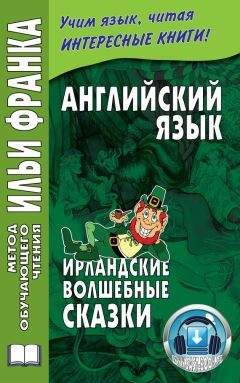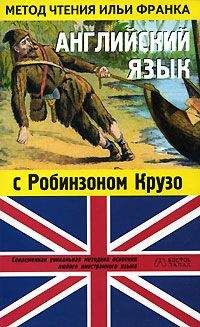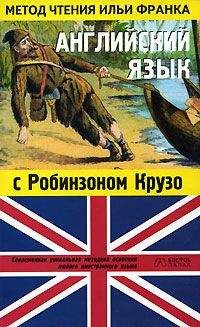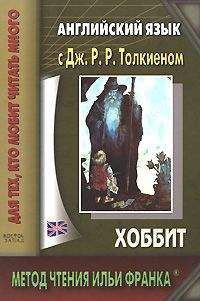Ознакомительная версия.
The two went home together. They had money enough now to live, and quit the fishing. They had plenty to eat and drink, and they spent their lives in ease and comfort till the next year, when it was given out at all the crossroads in Erin, and every public place in the kingdom, that there was to be a great hunting with hounds, in the same place where the races had been the year before.
When the day came (когда день /охоты/ наступил), the fisherman’s son said (сын рыбака сказал),
“Come, father, let us go away to this hunting (ну же, отец, давай пойдем на эту охоту).”
“Ah!” said the old man, “what do we want to go for (для чего нам нужно туда идти; to want – хотеть, желать; нуждаться)? Haven’t we plenty to eat at home (разве у нас дома не достаточно еды: «чего есть»), with money enough and to spare (и денег более чем достаточно; to spare – беречь, сберегать; иметь в излишке)? What do we care for hunting with hounds (какое нам дело до охоты с гончими; to care – заботиться /о ком-л., чем-л./, ухаживать; беспокоиться, тревожиться, волноваться; /ср. тж./ what do I care? – а мне все равно! меня это не интересует!)?”
“Oh! They’ll give us more money (нам дадут больше = еще денег),” said the son, “if we go (если мы пойдем).”
When the day came, the fisherman’s son said,
“Come, father, let us go away to this hunting.”
“Ah!” said the old man, “what do we want to go for? Haven’t we plenty to eat at home, with money enough and to spare? What do we care for hunting with hounds?”
“Oh! They’ll give us more money,” said the son, “if we go.”
The fisherman listened to his son (рыбак послушался своего сына), and away they went (и они ушли /вместе/; to go /went, gone/). When the two came to the spot (когда они вдвоем пришли на то самое место) where the son had made a horse of himself the year before (где сын превращался в коня год назад: «где сын делал жеребца из себя самого…»), he stopped, and said to the father (он остановился и сказал отцу),
The fisherman listened to his son, and away they went. When the two came to the spot where the son had made a horse of himself the year before, he stopped, and said to the father,
“I’ll make a hound of myself today (я превращусь сегодня в гончую: «я сделаю гончую из себя самого»), and when you bring me in sight of the game (а когда ты приведешь меня к месту охоты; sight – зрение; поле зрения, видимость; game – игра; дичь, зверь), you’ll see me wild with jumping (ты увидишь, как я буду дико прыгать: «ты увидишь меня диким от прыгания»; wild – дикий, дикорастущий; буйный, необузданный, неистовый) and trying to get away (и пытаться убежать); but do you hold me fast (но ты держи меня крепко) till the right time comes (пока не наступит подходящий момент; right – правый, правильный; подходящий; time – время; определенный момент времени), then let go (тогда отпусти /меня/). I’ll sweep ahead of every hound in the field (я промчусь вперед = обгоню каждую гончую на /охотничьем/ поле; to sweep /swept/ – мести; нестись, мчаться), catch the game (схвачу добычу; game – дичь, зверь, добытый на охоте), and win the prize for you (и выиграю для тебя награду).”
“I’ll make a hound of myself today, and when you bring me in sight of the game, you’ll see me wild with jumping and trying to get away; but do you hold me fast till the right time comes, then let go. I’ll sweep ahead of every hound in the field, catch the game, and win the prize for you.”
“When the hunt is over (когда охота закончится), so many men will come to buy me (такое множество человек придет купить меня) that they’ll put you in a maze (что они приведут тебя в смущение; maze – лабиринт; беспорядок, неразбериха, путаница; to maze – смущать, приводить в замешательство); but be sure you get three hundred pounds for me (но /ты/ обязательно получи триста фунтов за меня; sure – уверенный; обязательный, непременный), and when you have the money (а когда деньги будут у тебя: «когда ты будешь иметь деньги»), and are giving me up (и /ты/ будешь отдавать меня), don’t forget to keep my rope (не забудь оставить себе мой поводок: «не отдать мою веревку»). Come to this place (приходи на это место), shake the rope (потряси поводком: «веревкой»), and I’ll be here before you (и я окажусь: «буду здесь» перед тобой), as I am now (в своем обычном виде: «каким я есть сейчас»). If you don’t keep the rope (если ты не оставишь поводок), you’ll go home without me (ты пойдешь домой без меня).”
“When the hunt is over, so many men will come to buy me that they’ll put you in a maze; but be sure you get three hundred pounds for me, and when you have the money, and are giving me up, don’t forget to keep my rope. Come to this place, shake the rope, and I’ll be here before you, as I am now. If you don’t keep the rope, you’ll go home without me.”
The son made a hound of himself (сын превратился в гончую: «сделал гончую из себя самого»), and the old father took him to the hunting ground (и старый отец отвел его к месту охоты: «к охотничьим угодьям»; ground – земля; участок земли; hunting – охота; hunting ground – охотничий заказник).
When the hunt began (когда охота началась; to begin /began, begun/), the hound was springing and jumping like mad (гончий пес начал бросаться и прыгать как бешеный; to spring – прыгать, скакать /о людях и животных/; бросаться); but the father held him (но отец сдерживал его; to hold /held/ – держать; сдерживать, удерживать) till the others were far out in the field (пока остальные собаки не оказались далеко в поле). Then he let him loose (затем он его отпустил; loose – свободный, непривязанный; спущенный с цепи, выпущенный из клетки и т. п.; to let loose – выпустить, дать волю, свободу), and away went the son (и его сын бросился вдогонку: «прочь»).
The son made a hound of himself, and the old father took him to the hunting ground.
When the hunt began, the hound was springing and jumping like mad; but the father held him till the others were far out in the field. Then he let him loose, and away went the son.
Soon he was up with the pack (вскоре он поравнялся со сворой), then in front of the pack (затем /оказался/ впереди своры), and never stopped (и так ни разу не остановился; never – никогда; ни разу) till he caught the game (пока он не схватил добычу; to catch /caught/) and won the prize (и не выиграл награду; to win /won/).
Soon he was up with the pack, then in front of the pack, and never stopped till he caught the game and won the prize.
When the hunt was over (когда охота закончилась), and the dogs and game brought in (и собаки с дичью вернулись: «собаки и дичь были приведены обратно»; to bring /brought/ – приносить; приводить с собой), all the people crowded around the old fisherman (все люди столпились вокруг старого рыбака), saying (приговаривая), “What do you want of that hound (сколько: «что» вы хотите за эту гончую)? Better sell him (лучше продайте его); he’s no good to you (вам он без толку; good – добро, благо; выгода, польза).”
When the hunt was over, and the dogs and game brought in, all the people crowded around the old fisherman, saying, “What do you want of that hound? Better sell him; he’s no good to you.”
They put the old man in a maze (они смутили старика: «они привели старого мужчину в замешательство»), there were so many of them (так их было много: «там было так много из них»), and they pressed him so hard (и они так сильно на него напирали; to press – жать, нажимать; оказывать давление, притеснять; заклинать, упрашивать, сильно просить /о чем-л./).
He said at last (наконец он сказал), “I’ll sell the hound (я продам гончего пса); and three hundred pounds is the price I want for him (и триста фунтов – вот цена, которую я хочу за него).”
They put the old man in a maze, there were so many of them, and they pressed him so hard.
He said at last, “I’ll sell the hound; and three hundred pounds is the price I want for him.”
“Here ’t is for you (вот тебе /деньги/),” said a stranger, putting the money into his hand (сказал какой-то незнакомец, вкладывая деньги ему в руку).
The old man took the money (старик взял деньги; to take /took, taken/) and gave up the dog (и отдал собаку; to give /gave, given/), without taking off the rope (не сняв поводок: «без снятия веревки»). He forgot his son’s warning (он забыл предостережение своего сына; to forget /forgot, forgotten/).
“Here ‘t is for you,” said a stranger, putting the money into his hand.
The old man took the money and gave up the dog, without taking off the rope. He forgot his son’s warning.
That minute the Gruagach na g-cleasan called out (в то же самое мгновение Хитрый Груагах закричал; minute – минута; мгновение, момент), “I’ll take the worth of my money out of your son now (теперь-то уж сделка будет честной: «теперь я возьму стоимость своих денег из твоего сына»);” and away he went with the hound (и пошел прочь с гончим псом).
That minute the Gruagach na g-cleasan called out, “I’ll take the worth of my money out of your son now;” and away he went with the hound.
The old man walked home alone that night (в тот вечер старик пошел домой один; night – ночь; вечер), and it is a heavy heart he had in him (и на сердце у него было тяжело: «и тяжелое сердце он имел в себе»; heavy – тяжелый; мрачный, печальный, скорбный) when he came to the old woman without the son (когда он пришел к своей старухе: «старой женщине» без сына). And the two were lamenting their lot till morning (и /они/ вдвоем горько оплакивали свою судьбу до /самого/ утра; lot – лот, жребий; участь, судьба, доля).
Ознакомительная версия.





